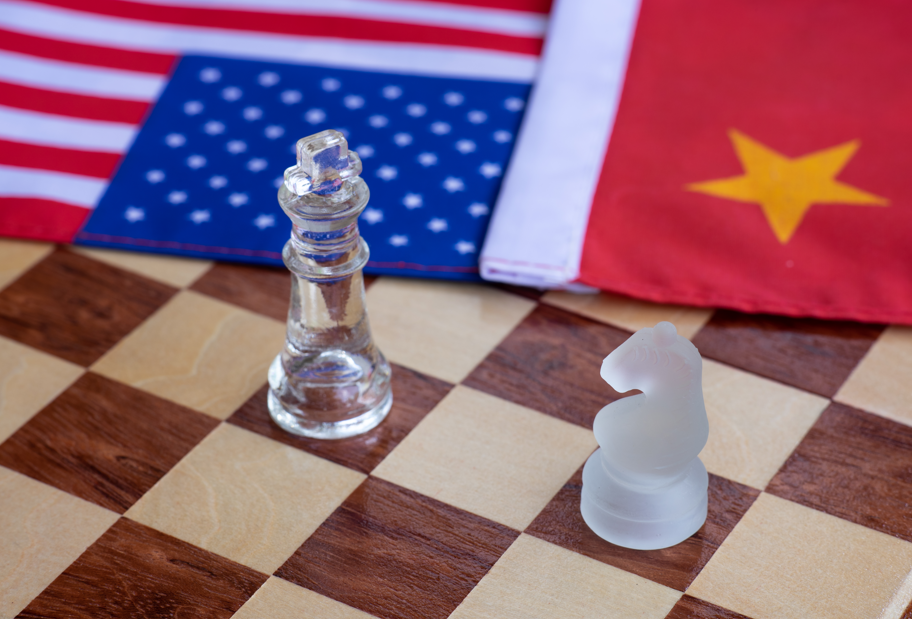
For China and the U.S., the year 2023 characterized by the continual testing of the boundaries of competition as a means of determining how to cooperate. From the unmanned airship crisis at the beginning of the year to the meeting and agreement between heads of state in San Francisco late in the year, the two countries at last see new opportunities for relaxation after stumbling through many rough patches.
How can China and the U.S. work together? They should, first of all, try to deal with contingencies and crises together. The balloon incident in February was a new crisis after a successful summit in Bali. Through representations in the months that followed, high-level contacts were gradually restarted and exchanges became warmer in many fields — a process that led to cooperation in response to a crisis. History seems to suggest that some incident or crisis beyond anyone’s expectation is virtually certain to arise, but the way it is managed is critical to its course of development. A confrontational attitude often amplifies a crisis and potentially leads to a greater impact.
China and the U.S. made useful attempts in the few months after the balloon incident to stabilize and resolve the situation, which was also a good tryout of strategic crisis management after an incident. In view of their long-standing major differences, such events may occur at any time, so steering a crisis away from devastating consequences though collaboration will be the key to preventing a direct conflict. As China-U.S. relations go down in recent years, the two sides have used the word “cooperation” less. However, resuming practical cooperation in crisis management could be a positive restarting point.
Meeting challenges in emerging fields together may also be promising for cooperation. For a long time, dealing with transnational and global challenges has been an important part of China-U.S. collaboration. These were once bonus points in China-U.S. relations, with added global value, from the fight against terrorism to climate change. However, in recent years, the U.S. has jumped into so-called strategic competition, which has poisoned the atmosphere for such cooperation.
Mankind now faces increasing threats in new domains. For example, a UN agency warns of climate change tipping points, and the rapid development of generative artificial intelligence has caused a deep concern about an AI doomsday. These and other problems are further increasing the global governance deficit.
In 2023, climate cooperation was a stabilizer in China-U.S. relations. The two countries also created an intergovernmental dialogue mechanism on AI that could help them to have a global stability perspective in mind when they think about their bilateral relations and develop more comprehensive approaches to competition in this field. In his later years, Dr. Henry Kissinger, a person of extraordinary strategic vision, repeatedly advised China and the U.S. to bear in mind the future of mankind and take the lead in global cooperation in such fields.
Crises and emerging challenges add new dimensions of potential collaboration. Admittedly, China and the U.S. may well proceed from their own interests to work together on these issues, so it’s uncertain whether such cooperation can stabilize the overall bilateral relationship. The key is that cooperation should not be an act of expediency or used only as a publicity slogan. Equally important is whether China and the U.S. can start with these healthy interactions and develop the habit of cooperation once again. This cumulative process may help shape an environment of benign co-existence, which is precisely why China advocates handling and promoting China-U.S. relations by way of mutually beneficial cooperation.
For the U.S., a necessity and benefits perspective on relations with China may help the strategists identify a policy logic that is different from the pessimistic strategic competition argument. Then the country may want to rebalance the mix of competition and cooperation in its China strategy.
In the past year, China and the U.S. restarted and built up a series of dialogue and consultation mechanisms and gradually accumulated potentials for cooperation. But they still need to pass through the fire of a divided America. The hard-won cooperation potential may well be interrupted by the new election cycle in 2024. Deepening political polarization, the increasing influence of Congress on China-related policies and magnified negative rhetoric are more likely to make America’s China policy more volatile and confusing and put China’s policy decisions and public opinion to the test for a protracted period.
Such a situation is not new in China-U.S. relations. But it undoubtedly deserves more discussion at a time when the bilateral relationship is particularly sensitive and benign interactions are increasingly hard to come by.
